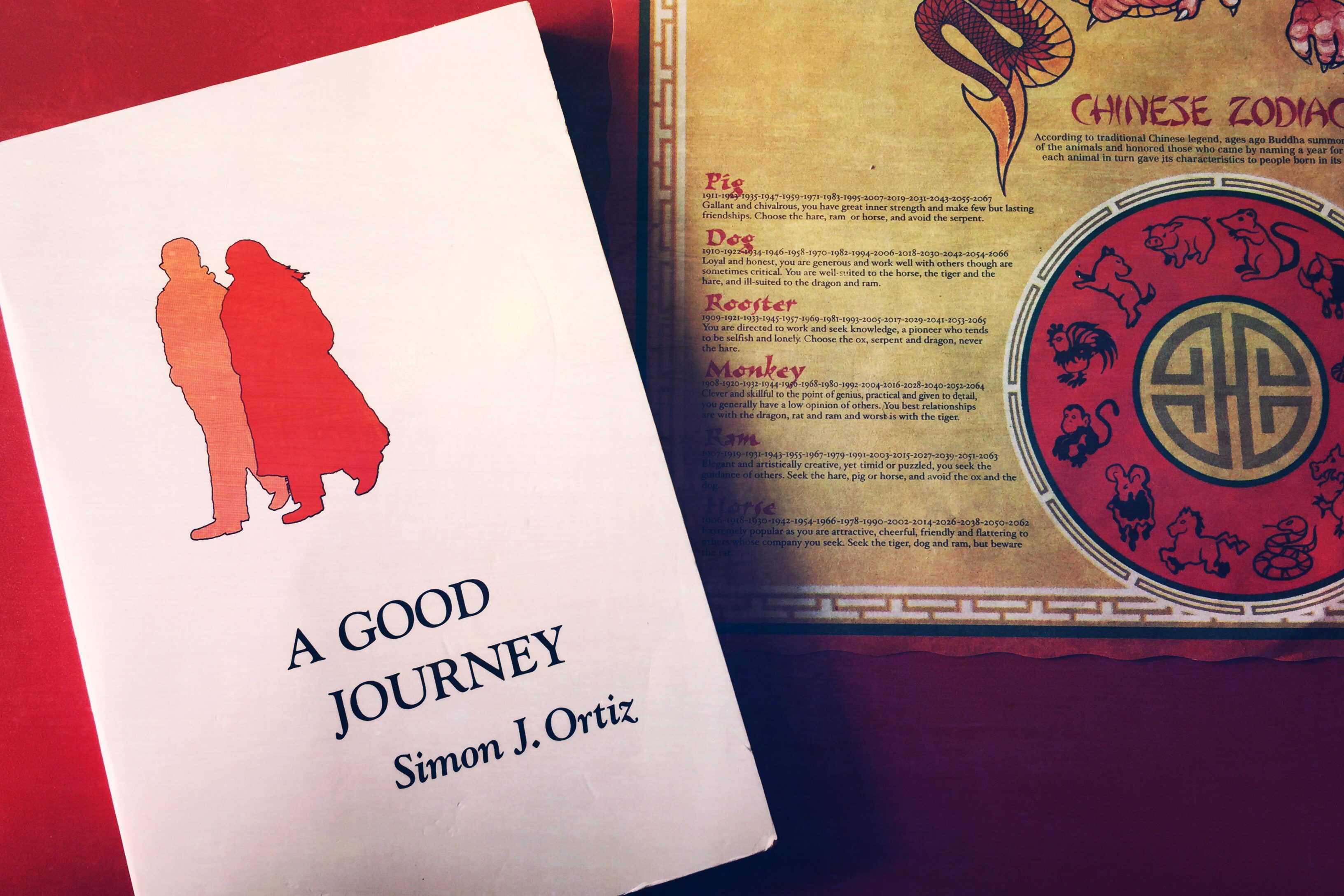
Overall, while I liked this book, I didn’t connect with it the way I do with Annett or even Rita Joe. I enjoyed the longer prose style however, and the continual exploration of identity, land, and personal relationships.
Grand Canyon Christmas Eve 1969 – p. 47
I chose this poem as it shares perspective of parenting from a father’s view, a new interest of mine (parenting in writing). In the poem, the speaker is watching his child sleeps and places us within the scene – “[t]he fire is a higher blue / rhythm and melody. / The mist fills the carved earth . / Breathe: who did this? / River. That little river?” He notes that the earth breathes with the animals and the wind. He then hears his son cry, as his son is “snuggled down / like he was back / on Siberian ice, / the glacial winds howling.” He says in the old days, they came to pay respects, the bless the earth, to ask for blessings. To make strong sons, and healthy mates. Now, he shakes a log, bringing us back into the present, and it’s an interesting technique of building a story within the poem, but then asking the reader to come back to the main moment. Nature keeps guiding tehpoesm with mentions of the moon, the forests, the stones and damp sand. He lists the actions he must take to eat and drink – mutton and tea, over an open fire. As he does this, he notices a sign showing that you must pay for firewood in the forest, in the national park.
He is offended, as “my grandfather / ran this place / with bears and wolves / They even talked / with each other about it, / and you don’t even listen.” So he takes the firewood, without paying. “Sue me.” He lays down in his earth bed, saying “it is possible / to believe legend, / heroes praying on mountains, / making winter chants, / the child being born Coyote, / his name to be the Christ.” And this is a super interesting idea, and I like this – the idea that religion and tradition is adaptable. I think is a huge component of Indigenous survival – adaptability, taking ideas and holding them to suit our ideals. How culture is not static, so much as alive. I don’t know any clear thoughts yet, but I’m glad to see this noted.
Woman, This Indian Woman – p. 85
This is a love poem, I find. It is in four parts. Part I is about the first time that the woman and the speaker/man meet. He compares the black mountains and the black crow to her, trying her existence in with nature already. She comes from behind a cedar tree, cedar being a powerful medicine within most Indigenous communities. She had deep eyes, full of history, and he had been so alone, and lonely, without her.
Part II seems to be about how the woman and the man come together. His language is reminiscent of what is now often referred to as “Red English” – verbs and adjectives places in “wrong” sequence, but this is familiar to me, and makes me smile. It makes me think that the speaker is being shown as a multi-language user. But either way, they touch, and he says, “Sun, it was I held / out my hands, my body to receive.”
Part III, the woman conceives and gives birth to her son. She tells him, “The sun, your father.” But when she died, “the earth remembered her well” which I take to mean as she returned to the earth, the trees, the black crows, the black mountains.
Part IV: He remembers.
Get the book: A Good Journey – Simon J Ortiz


